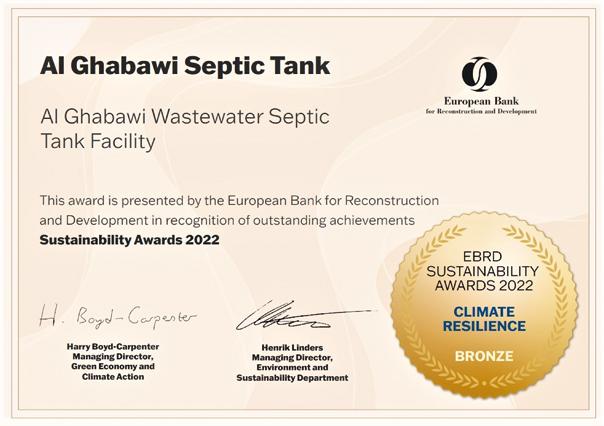By JT – May 22,2022

AMMAN — The Water Ministry on Saturday received the bronze European Bank for Reconstruction and Development’s (EBRD) 2022 Sustainability Award for Al Ghabawi Wastewater Septic Tank Facility, the Jordan News Agency, Petra, reported.
Water Minister Mohammad Najjar expressed pride in this achievement, adding that the project was submitted following His Majesty King Abdullah’s participation in the London Conference.
In a press statement, Najjar said that the project comes within the water sector’s aims to create a comprehensive plan for the sewage sector, raise the standard of environmental life, implement advanced sewage stations in a number of regions that meet all global, environmental and health requirements for sanitation.
He stressed that continuous efforts are being exerted to implement these projects.
These projects reflect the ministry’s efforts to improve water and sanitation services and secure sustainable water sources by treating sea water, reducing losses, expanding sewage treatment plants, developing available saline resources, and developing water management systems.
The minister added that the ministry seeks to “optimally use every drop of water”, preserve and provide drinking water, as well as treated water for agriculture purposes despite the decline in the available water quantities.
Secretary General of the Water Authority Bashar Bataineh stated that the project is a Jordanian achievement, indicating that the project aims to build a purification plant for wastewater treatment and transfer the current Ain Ghazal plant in the centre of Amman outside populated areas.
This step will aid in ameliorating all environmental problems related to odours.
He pointed out that the award is only granted according to high-standard conditions, explaining that the Ghabawi project’s receipt of this award will help facilitate the completion of the project and help attract funding and grants.
He added that the project includes the construction of a sewage treatment plant to serve the regions until the year 2045, with a daily capacity of 22,500 cubic metres.
